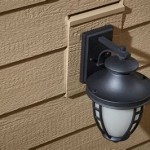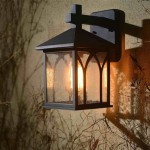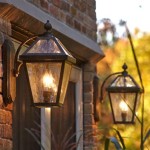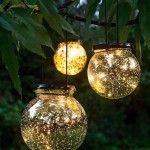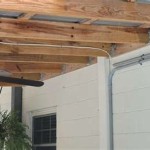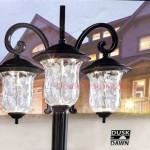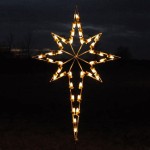Essential Aspects of Outdoor Lighting Types
Outdoor lighting plays a crucial role in enhancing the functionality, safety, and aesthetics of your outdoor space. Whether you're illuminating pathways, highlighting architectural features, or creating a cozy ambiance, choosing the right types of lighting can make all the difference. Here's a guide to the essential aspects of outdoor lighting types, helping you make informed decisions for your outdoor illumination needs.
Types of Outdoor Lighting Fixtures
Outdoor lighting fixtures come in various types, each designed for specific purposes. Common types include:
- Spotlights: Focused beams to highlight specific areas, such as trees or statues.
- Floodlights: Wide beams to illuminate larger areas, such as driveways or patios.
- Pathlights: Low-level lights to guide pathways or walkways.
- Deck Lights: Installed in or around decks, providing ambient lighting and safety.
- Step Lights: Installed on steps to enhance visibility and reduce tripping hazards.
- Hanging Lights: Suspended from trees, poles, or structures, providing general illumination.
Light Sources
The choice of light source affects the efficiency, lifespan, and color temperature of your outdoor lighting. Options include:
- Incandescent Lights: Traditional bulbs that produce warm, inviting light but have shorter lifespans.
- CFLs (Compact Fluorescent Lamps): Energy-efficient bulbs that provide daylight-like illumination.
- LEDs (Light-Emitting Diodes): Highly efficient and long-lasting bulbs that provide various color temperatures.
Color Temperature
The color temperature of light refers to its warmth or coolness. It is measured in Kelvins (K) and can affect the ambiance and mood of your outdoor space. Common color temperatures include:
- Warm White (2700-3000K): Yellowish-orange light that creates a cozy and inviting atmosphere.
- Natural White (3500-4100K): Daylight-like light that provides clear visibility and minimal distortion.
- Cool White (5000-6500K): Bluish-white light that offers high visibility and a modern look.
Control Options
The ability to control your outdoor lighting allows you to adjust brightness, schedule lighting times, and create scenes. Control options include:
- Manual Switches: Simple on/off switches for basic lighting control.
- Timers: Automatic timers that turn lights on and off at pre-set times.
- Sensors: Motion sensors or photocells that activate lights based on movement or ambient light levels.
- Smart Controllers: Advanced controllers that enable remote control, customization, and energy optimization.
Design Considerations
When choosing outdoor lighting types, consider the following design factors:
- Purpose: Determine the specific needs and functions of the lighting.
- Style: Select fixtures that complement the architectural style and aesthetics of your outdoor space.
- Placement: Position lights strategically to provide optimal illumination and minimize glare.
- Energy Efficiency: Opt for energy-efficient light sources to reduce energy consumption.
- Security: Utilize motion-activated lighting to deter intruders and enhance security.
By understanding these essential aspects of outdoor lighting types, you can create a tailored and effective lighting plan that enhances the functionality, safety, and beauty of your outdoor space. Consider your specific needs, design preferences, and budget when selecting fixtures, light sources, control options, and design strategies.

Everything You Need To Know About Landscape Lighting

Landscape Lighting Types Outdoor Lights Backyard Nptpool Com

Landscape Lighting Techniques And Types

Landscape Lighting Designer Outdoor Shockyelectric

Light Guide Outdoor Lighting Fundamentals

Reduce Light Pollution With Better Outdoor Lighting 5 Principles

8 Types Of Outdoor Lighting For Commercial Buildings

A Landscape Lighting Guide For Beginners Metrogreenscape

Outdoor Lighting Types

Types Of Outdoor Landscape Lighting 7 Must Have Fixtures
